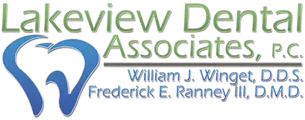Preventive dentistry is intended to prevent dental problems and related health conditions before they start. Preventive dentistry is the best protection against gum disease, tooth loss, and other dental conditions and requires a collaborative effort between patient and doctor to ensure proper care each and every day.
Preventive dentistry helps patients avoid the costly and invasive procedures that are often needed for serious dental conditions. Maintaining dental health helps patients look and feel their best.
Preventive dentistry includes:
Regular Dental Exams
Comprehensive dental exams are recommended once every six months for all patients. These visits help identify any tooth decay or early signs of gum disease or oral cancer through diagnostic X-rays and a physical examination. Early detection of these conditions can help ensure effective treatment and prevent permanent damage.
Regular Cleanings
Regular cleanings by a certified dental hygienist help keep teeth clean and healthy. A dental cleaning includes removal of tartar and plaque, which can build up and cause inflammation and disease if left untreated. The teeth are also polished during a cleaning to remove stains that may not be removed during regular tooth brushing.
At Home Dental Hygiene
Patients should brush their teeth at least twice a day, especially before going to bed at night. The American Dental Association recommends brushing for at least two minutes with a soft bristle toothbrush and toothpaste to clean every surface of each tooth. It is also recommended to floss at least once each day to clean the spaces between the teeth and under the gums. Over-the-counter mouthwashes are often helpful in freshening breath and protecting the mouth from disease as well. We recommend using a non-alcohol based mouth wash such as Listerine Zero, or Crest Pro Health Rinse.
Healthy Diet
Eating balanced meals and reducing the number of sugary snacks eaten can also help improve dental hygiene.
Pediatric Dental Care
Preventing dental conditions requires a lifelong commitment that usually begins with the appearance of the first tooth. Children should see a dentist shortly after the emergence of teeth to begin developing proper dental hygiene habits. Parents play an important role in helping their children develop and maintain these habits throughout childhood and early adulthood.
Digital X-Rays
Dental X-rays are a valuable diagnostic tool used to identify decay, tumors, cysts and extra teeth, as well as track the progress of previous procedures. While generally considered to be safe, traditional X-rays briefly expose patients to radiation. Newer technology allows digital X-rays, which reduce radiation exposure more than 50 percent, to produce instant, high-quality images.
Digital imaging or X-ray results are immediate and the diagnosis can be discussed between dentist and patient immediately after examination. Digital X-rays allow a dentist to easily share X-ray results with other doctors, if needed.
Periodontics
Why all the fuss about periodontal or gum disease? Why all the lectures at your hygiene appointments?
For a very good reason.
Periodontal disease is a progressive one, that is, if it doesn't stabilize or show signs of healing, it's bound to get worse. Even when it doesn't hurt, untreated gum disease will eventually result in tooth loss.
The course of gum disease proceeds in spurts of activity over time. In Type I cases - gingivitis - we find the gums inflamed or swollen. A crevice or pocket between the tooth and gum has deepened to about 4 mm, indicating early detachment of the supporting gum tissue. But the bone is still in good shape.
As pockets deepen to 4-6mm, the condition is on its way to early or moderate periodontitis (type II periodontitis). Gum inflammation extends to the bone beneath, which begins to erode. In Types III and IV periodontitis, we're racing with the clock. Pockets deepen further still, and teeth begin to loosen and move. At this point, without surgical intervention, the teeth are, well, history.
But there is a bright side. Every day, dental science is finding new ways to solve the problem. Since every stage of the disease can be treated, our practice has helped many patients save their teeth and bring their gum tissue back to health and vitality.
That's the reason for all the fuss.

